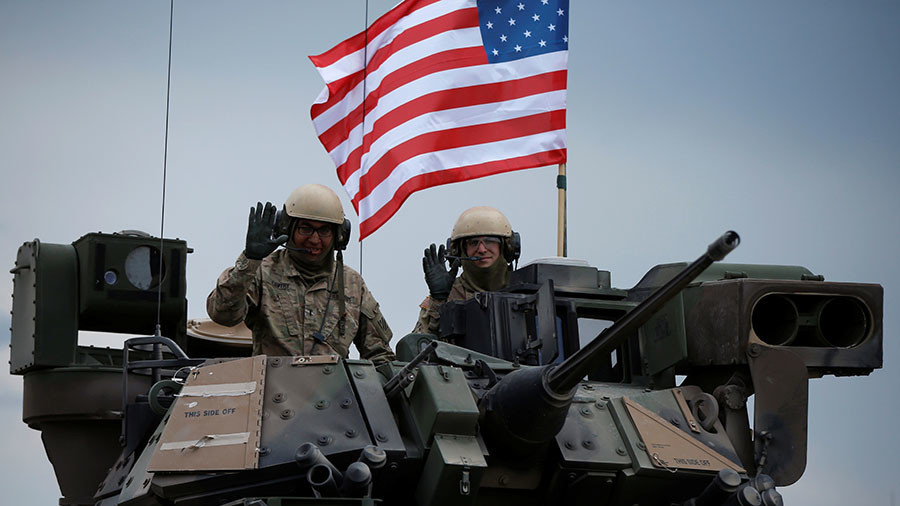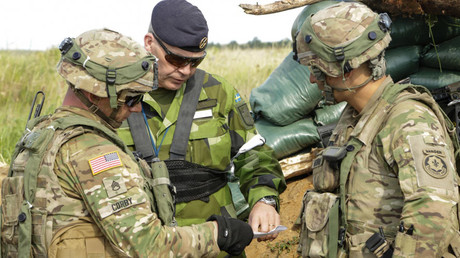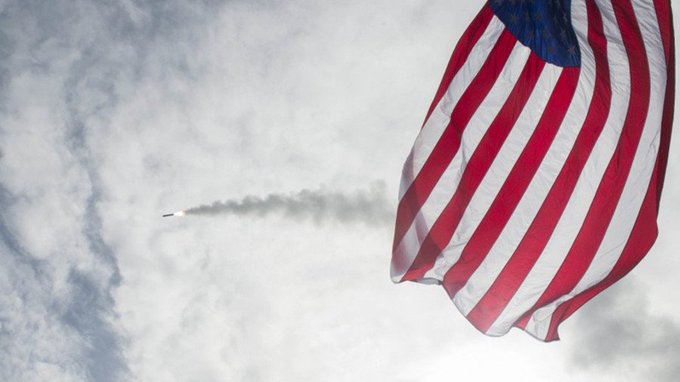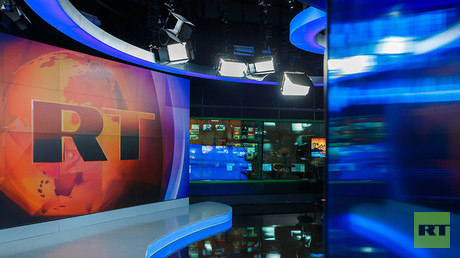Troops, toys & threats: Trump signs $700bn military funding bill
US President Donald Trump has signed into law $700 billion in funding to the Pentagon, which includes a pay raise for troops and funding for a number of pet projects. It also breaks the ceiling set by the 2011 law on budget caps.
Congress sent the final version of the 2018 National Defense Authorization Act (NDAA) to Trump at the end of November, and he ceremonially signed the bill Tuesday. The White House noted that the bill envisioned the largest pay raise for US military personnel in eight years and the biggest military expansion since the 1980s.
The final markup allocates $634 billion to Pentagon operations and almost $66 billion for the overseas contingency operations (OCO) fund, intended for bankrolling wars in Iraq, Afghanistan and elsewhere. That’s about $32 billion more than what Trump initially requested.
Shiny toys
“Brand new beautiful equipment is on its way, the best you’ve ever had by far,” Trump said on Tuesday. The bill authorizes the purchase of many weapons systems. In particular, the Congressional version authorizes the expenditure of $10.6 billion for 94 Joint Strike Fighter planes, which is $3.1 billion and 24 planes more than the White House asked for.
This translates into 60 F-35A models for the US Air Force, 24 F-35B models for the Marines, and 10 F-35C models for the US Navy. Another 24 F/A-18 Super Hornets – 10 more than the administration requested – have also been approved, to make up the shortfall of Navy planes.
The bill also approves $103 million more than the government requested to restart the production of A-10 ground attack aircraft, a 1970s workhorse which the F-35 was supposed to replace.
More missile money
Over $12 billion is allocated to the Missile Defense Agency (MDA), along with orders for a rapid buildup of missile defense capabilities to counter the threat from what Trump called the “vile dictatorship in North Korea.”
Congress approved $705 million for missile defense programs the US is developing jointly with Israel, including $290 million for purchases and $268.5 million for research, development and testing – $558.5 million more than the administration requested.
Another $65 million is allocated for research and development of a ground-launched intermediate-range missile, in order to close the “capability gap” with Russia without violating the 1987 Intermediate Range Nuclear Forces (INF) Treaty.
The bill declared that Russia’s RS-26 Rubezh ballistic missile is violating the INF Treaty. Trump took exception to that, saying he will “apply this provision consistent with the President's constitutional authority to identify breaches of international agreements.”
Big Bad Russians
Claiming that “Russian aggression” requires the US to consider permanently deploying troops in Eastern Europe, the NDAA allocates funds for “European Deterrence Initiative” to the base Pentagon budget. Such funding was previously part of the contingency operations fund.
The Russian threat was also invoked to prohibit the Pentagon from using software developed by Kaspersky Labs, and to approve $500 million in “defensive lethal assistance” to Ukraine. However, the disbursement of these funds will be conditional on “substantial” reforms of Ukraine’s military by the authorities in Kiev, which would need to be certified by the US Secretary of Defense.
War without end
Even though Islamic State (IS, formerly ISIS/ISIL) has been declared defeated in Syria and Iraq, the NDAA authorizes $1.8 billion in funding for counter-IS efforts via the “train and equip” program. Another $4.9 billion was allocated for the Afghanistan Security Forces Fund, of which $25 million will go towards “recruitment, training, and integration of women into the Afghan National Defense and Security Forces.”
Pentagon audit and reforms
The 2018 NDAA also requires the Pentagon to certify its financial statements as ready for audit. Last week, the Department of Defense announced it would start the first-ever audit of some $4.2 trillion in assets.
Section 910 of the NDAA promotes the Chief Management Officer (CMO), to the third most senior position in the Pentagon. While Trump said he supports the policy behind it, the provision “raises constitutional concerns” related to the president's appointment authority, he said in a signing statement.
In order for the NDAA to become law, Congress would need to repeal the 2011 sequester that imposes limits on federal spending, which has not happened yet. The law caps 2018 military spending at $549 billion.
Deal-breaker
Among the amendments to the NDAA, No 1096 aims to “prohibit multichannel video programming distributors from being required to carry certain video content that is owned or controlled by the Government of the Russian Federation.”
Senator John McCain (R-Arizona) submitted the amendment, proposed by Senator Lindsey Graham (R-South Carolina) and co-sponsored by Senator Sheldon Whitehouse (D-Rhode Island).






0 Comments:
Post a Comment
Subscribe to Post Comments [Atom]
<< Home